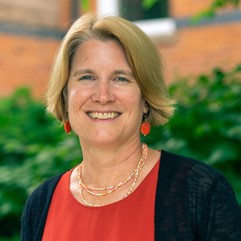By: Sonja Fritzsche
Fixed-term faculty and academic staff often do not have the same access to a means of socialization into academic life as tenure-stream faculty. Some fixed-term faculty can feel isolated in their specific duties and have fewer opportunities to network than tenure-stream faculty. The perceived temporary nature of these appointments by unit administrators often leads departments to invest less and offer fewer privileges to people in such positions. In reality, units should be doing the opposite for multiple reasons. First, fixed-term faculty and academic staff are dedicated, highly qualified individuals who wish to pursue careers in academia. Many are teaching formative courses to a broad variety of undergraduates, a central focus of our land-grant mission. Others are principal investigators or essential contributors to research grants or are leading outreach and engagement initiatives. Such faculty and academic staff also provide essential functions in departments and across campus including in student advising, teaching and learning support, educational technology, grant writing, and the list grows.
One way that the College of Arts & Letters is engaging its diverse non-tenure stream faculty is through its College Faculty Mentoring Fellows Program. This program places paid mentors with volunteer mentees in groups of four to six with two mentors and two to four mentees in each group. The group is free to meet as a community or in smaller subgroups as needed. Every effort is made to create diverse groups of multiple appointment types and experiences to ensure that participants are matched with group members from outside of their own units. This flexible group structure encourages peer mentoring as well as multiple mentors.
The above program was started in spring 2019 as an expanded version of the original one for tenure-stream faculty begun the previous year. It also includes a faculty development component that consists of separate mentor and mentee training workshops in the spring followed by a joint mentor/mentee kick-off event in March or early April. Mentors and mentees meet in April and May and then monthly for the following academic year beginning that August. An additional fall kick-off, supplemental workshops, and a spring concluding event follow. Work is assessed through participant Qualtrics questionnaires. The total size of the program ranges between 15-25. I wish to thank MSU colleagues Melissa McDaniels and Emily Bouck who helped to design the original program. It also utilizes readings by Beronda Montgomery on mentoring, among other publications.
The expansion of the program to include non-tenure stream faculty was done in a participatory way through multiple meetings with fixed-term faculty and academic staff. At these gatherings, attendees expressed a desire to know more about different position types at MSU, career development, networking, and community-building opportunities. Mentoring topped their list as well as workshops on grant writing. The program will continue to undergo development through an iterative review process.
A primary goal of this program is to help faculty and academic staff both on and off the tenure track cultivate their paths to intellectual leadership (CPIL). Because of the contingent nature of their positions, non-tenure stream faculty and academic staff often do not have access to career development opportunities, nor is there a clear path for the future. The CPIL initiative encourages everyone to think of themselves as grassroots leaders and what a self-defined career path might mean in their particular specialty areas. It can help them to articulate a longer-term goal on the “horizon” and to self-define “milestone” achievements and the smaller “stepping stone” objectives along the way. According to this method, faculty and staff members envision how they are “creating opportunities” and “sharing information” for and with others as well as helping to “mentor and steward” communities of practice, programs, units, and the institution. In this manner, the CPIL approach provides more textured language to recognize, value, and assess the outcomes of rich and diverse types of academic labor and achievements. As Associate Dean of the College of Arts and Letters, Bill Hart-Davidson has pointed out in conversation, more meaningful evaluation of published scholarship is not done through measuring the means of conveyance (e.g., book, article), but rather in assessing the benefits of sharing that knowledge. (1) For non-tenure stream faculty, as well as tenure-system faculty, the CPIL approach is particularly useful in giving voice to and capturing the wide variety of ways in which they contribute to the university’s overall land-grant mission. The work of the College’s faculty-led Task Force on Non-tenure Stream Pathways will commence this spring 2020 to focus on promotion criteria, review best practices, and make recommendations on ways to make promotion meaningful including and beyond the title. Mentorship will continue to be an important part of academic staff, fixed-term faculty, and tenure-stream faculty development as part of the daily enactment of the College’s values of inclusion, equity, openness, and community.
- For further information see “Values, Activities, and Outcomes of Intellectual Leadership” by Sonja Fritzsche, Bill Hart-Davidson, Chris Long. Licensed under CC By 4.0. See also the important work done by the Mellon funded HuMetricsHSS Initiative.


